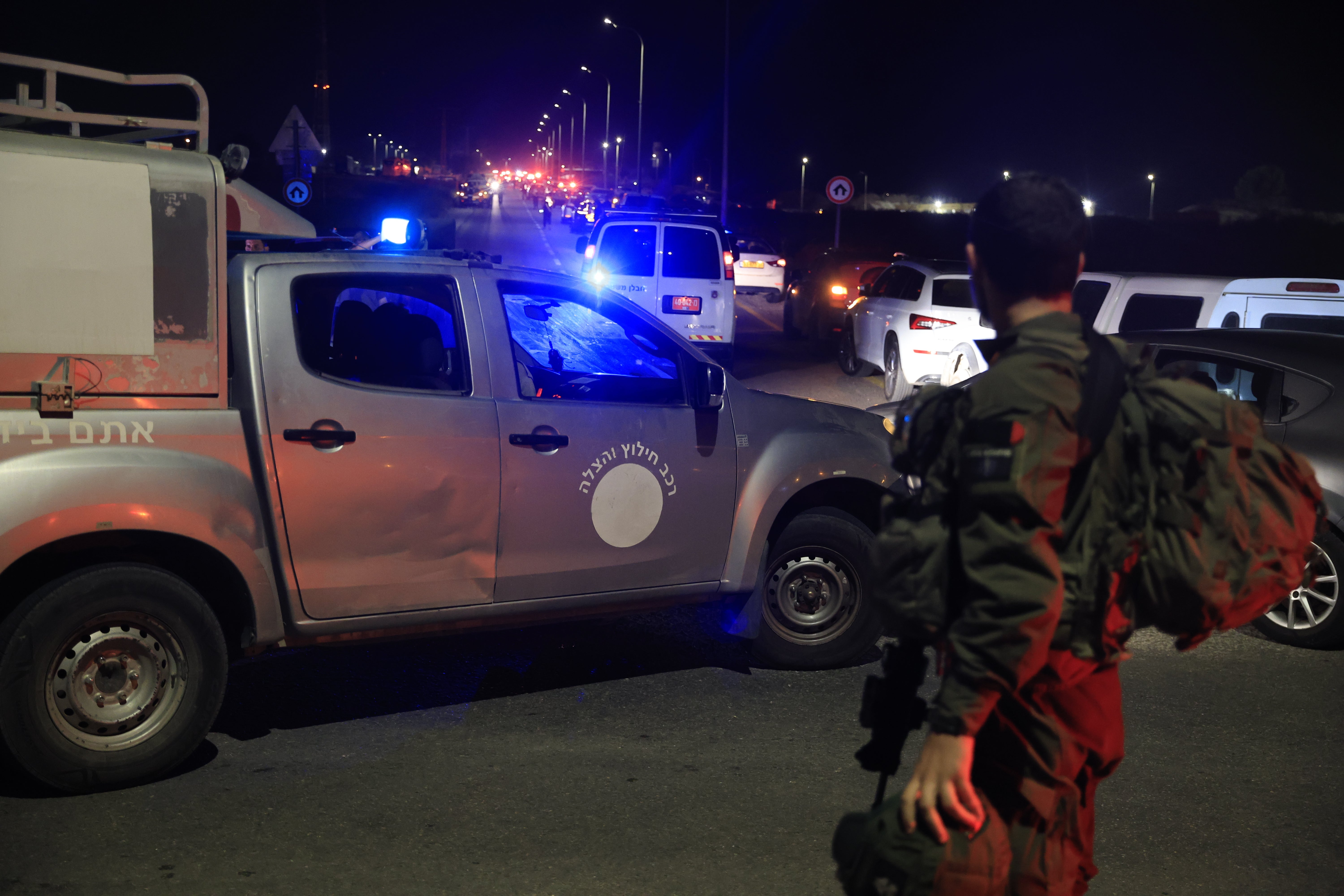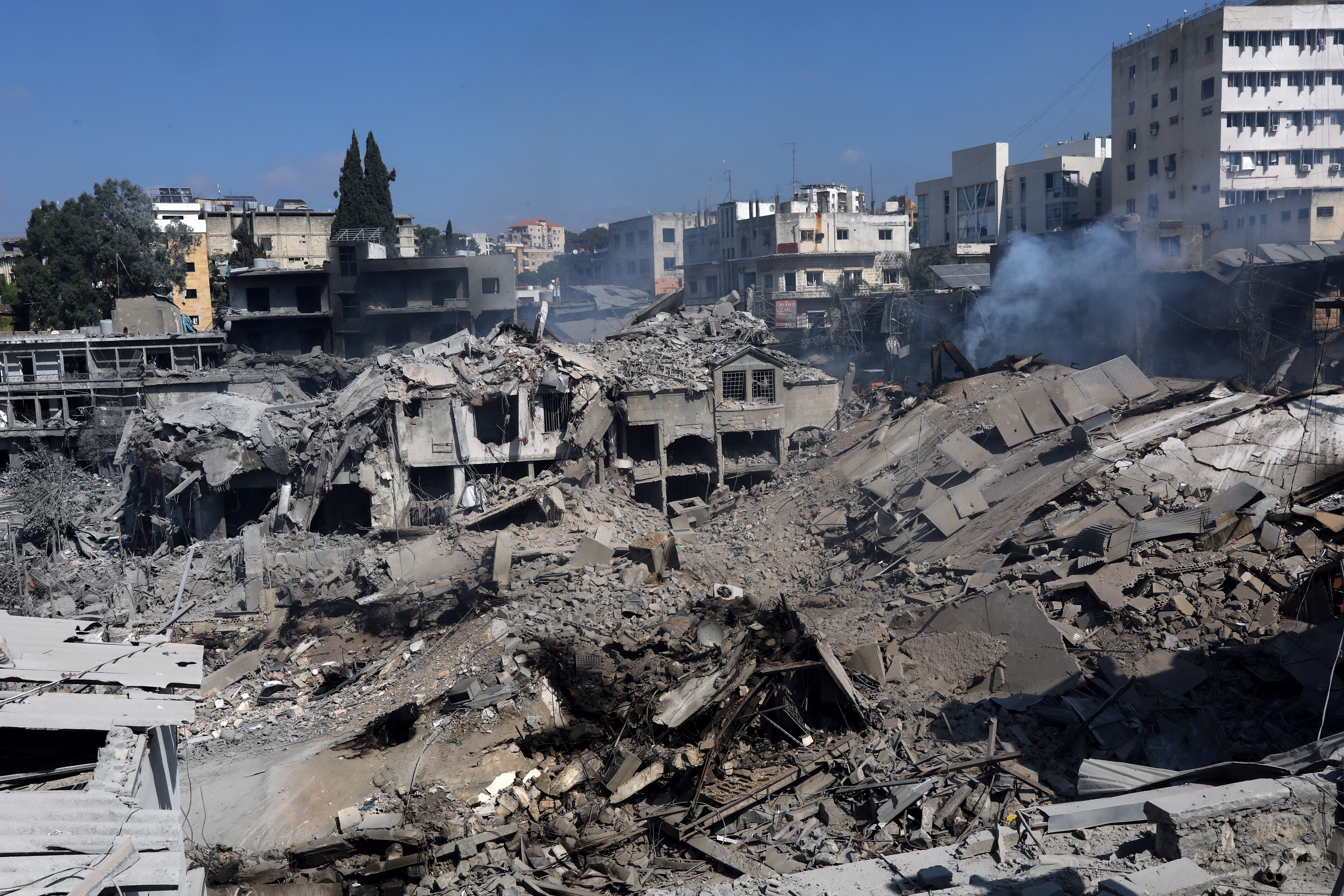Your support helps us tell the story
According to most polls, this election is still a dead heat. In a fight with such thin edges, we need reporters who talk to people Trump and Harris love. Your support helps us send reporters to the story.
The Independent is trusted by 27 million Americans from across the entire political spectrum every month. Unlike many quality news outlets, we choose not to lock you in with paywalls for our reporting and analysis. But quality journalism still pays.
Help us bring these critical stories to light. Your support makes all the difference.
Israeli tanks forced their way into a United Nations peacekeeping base in southern Lebanon on Sunday, the organization said, as the U.N. Allegation of recent violations and attacks by the IDF.
Israeli Prime Minister Benjamin Netanyahu, UN This comes as troops have been asked to leave the area.
The United Nations Interim Force in Lebanon (UNIFIL) said two Israeli Merkava tanks were destroyed and blasted through the base’s main gate before dawn on Sunday.
After the tanks left, bombs exploded 100 meters away, sending smoke billowing across the base and the UN. Employees fell ill, 15 required treatment despite wearing gas masks, it said in a statement.
In its version of events, the Israeli military said fighters from the Iran-backed group Hezbollah fired anti-tank missiles at Israeli troops, injuring 25 of them. The attack was very close to a UNIFIL post and a tank that helped evacuate casualties caught in the fire turned into the UNIFIL post.
“It didn’t hit a base. It didn’t try to enter a base. It was a tank that was under heavy fire, a massive casualty event, supported to get out of harm’s way,” Nadav Shoshani, the military’s international spokesman, told reporters.
In a statement, it said it used a smoke screen to evacuate wounded soldiers, but its actions were criticized by the UN.
Five peacekeepers have been injured in a series of strikes in recent days, most of which UNIFIL has blamed on Israeli forces.
Any deliberate attack on peacekeepers is a “serious violation of international humanitarian law and resolution 1701,” the UN said. Force said.
United Nations Secretary-General Antonio Guterres warned on Sunday that any attack against peacekeepers “could constitute a war crime,” his spokesman said.
Earlier in the day, Mr Netanyahu said in a statement to Mr Guterres: “The time has come for you to withdraw UNIFIL from Hezbollah’s strongholds and war zones.”
He added: “The IDF has repeatedly requested this and met with repeated denials, which has the effect of providing human shields to Hezbollah terrorists.”

Hezbollah launched a drone attack on a military base near the Israeli city of Binyamin on Sunday. The IDF said four soldiers were killed and 67 wounded, many of them in critical condition.
Meanwhile, the Pentagon announced on Sunday that the United States would deploy a Terminal High Altitude Area Defense (THA) battery and troops to Israel, shortly after Iran warned Washington to keep US military forces out of Israel.
In a statement, spokesman Maj. Gen. Pat Ryder said Defense Secretary Lloyd Austin authorized the use of the THAAT battery at the direction of President Joe Biden.
Maj. Gen. Ryder said the system will help bolster Israel’s air defenses following Iranian missile attacks in April and October.
“This action underscores America’s ironclad commitment to defend Israel and protect Americans in Israel from further missile attacks by Iran,” said Maj. Gen. Ryder.
However, it comes after Mr Austin, in a call with Israeli Defense Minister Yoav Gallant on Saturday, expressed “deep concern” over reports of Israeli forces firing on peacekeeping positions. He urged Israel to ensure the safety and security of the Lebanese army, which did not take part in Israel’s conflict with Hezbollah.
Italy, France and Spain joined the UN. Countries condemning Israeli attacks on peacekeepers included the Italian government, usually a vocal supporter of Israel, which condemned them as “unacceptable”.

According to an excerpt of the report seen by Reuters, the Israeli military told the UN weeks ago to prepare to relocate 5 km (3 miles) from the border. The peacekeepers were told to move out of the way.
Hezbollah, which has been fighting on Israeli ground in southern Lebanon since launching an incursion earlier this month, denies Israeli accusations that it uses the peacekeepers’ proximity for protection.
The conflict between Israel and Hezbollah resumed a year ago, when the Iranian-backed group supporting Hamas began firing rockets into northern Israel at the start of the Gaza war, and has escalated sharply in recent weeks.
Israel’s offensive against Hezbollah over the past three weeks has dealt an unprecedented blow to the group by uprooting 1.2 million Lebanese and killing most of its senior leadership.
The Lebanese government says more than 2,100 people have been killed and 10,000 wounded in the year-long conflict, mainly in the past few weeks. The toll does not distinguish between civilians and combatants, but includes large numbers of women and children.
Meanwhile, the Middle East is on high alert for Israel in response to Iran’s October 1 launch of long-range missiles in response to Israel’s attacks on Lebanon.
Iran said on Sunday there were “no red lines” in self-defense. Foreign Minister Abbas Arakchi’s comments appeared aimed at countering suggestions that Iran would absorb an Israeli attack without retaliation, as it did earlier this year when Israel last attacked Iran after a missile attack by Iran.
Later, Revolutionary Guards Space Commander Amir Ali Hajizadeh said Tehran was ready to respond to any Israeli action, the semi-official Tasnim news agency reported.